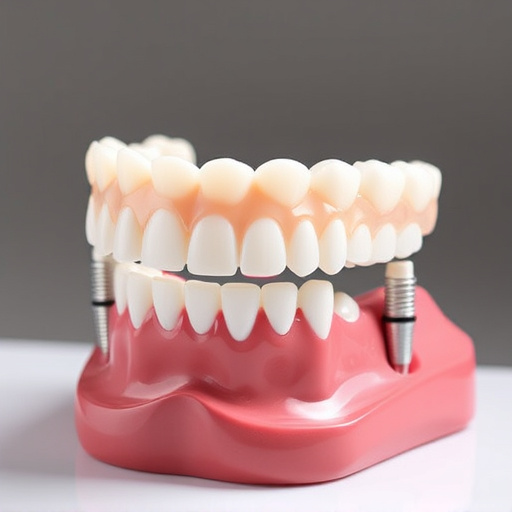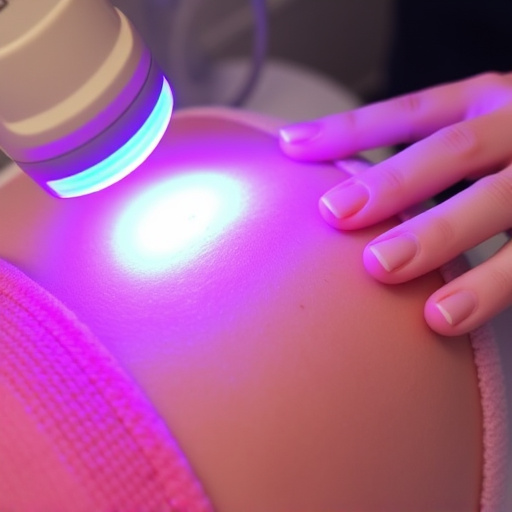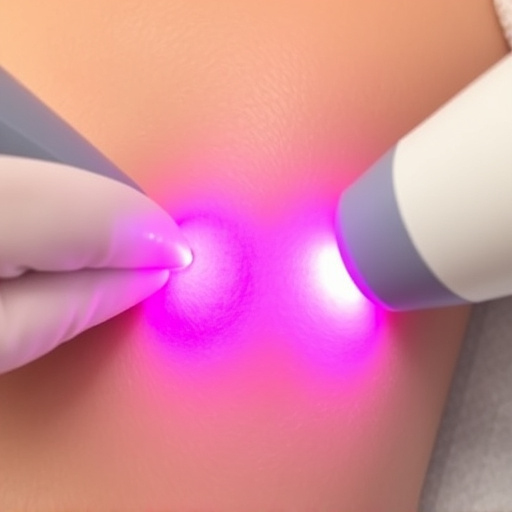Dermatitis, a broad term for skin inflammation, has various types with distinct causes and symptoms. Effective treatment requires understanding your specific condition, combining management strategies (topical creams, antihistamines, light therapy, procedures), adopting lifestyle changes (gentle skincare, balanced diet, hydration, good hygiene, allergen avoidance), and seeking professional services for custom treatments. Holistic approaches focused on overall skin health offer significant relief for dermatitis symptoms.
Dermatitis, a condition marked by itchy, inflamed skin, can be triggered by allergens or irritants. This article offers comprehensive guidance on managing dermatitis effectively. We begin by exploring the causes and diverse types of this skin reaction, from atopic dermatitis to contact dermatitis. Next, we delve into various treatment options, including topical creams and lifestyle adjustments. Additionally, learn valuable self-care practices designed to soothe symptoms and prevent flare-ups, emphasizing the importance of personalized dermatitis treatment.
- Understanding Dermatitis: Causes and Types
- Exploring Treatment Options for Effective Management
- Lifestyle Changes and Self-Care for Skin Relief
Understanding Dermatitis: Causes and Types

Dermatitis is a broad term for conditions that cause the skin to become inflamed or irritated. It’s a reaction to an external or internal stimulus, such as allergens, irritants, or even certain foods. There are several types of dermatitis, each with its own set of causes and symptoms. Atopic dermatitis, also known as eczema, is a common type characterized by dry, itchy skin that can be triggered by environmental factors like pollen, dust mites, and certain fabrics. Contact dermatitis occurs when the skin comes into direct contact with an irritant or allergen, leading to redness, itching, and sometimes blisters.
Other forms include seborrheic dermatitis, which affects the scalp and face, and stasis dermatitis, often seen in individuals with poor blood circulation. Understanding these causes is crucial for effective dermatitis treatment. Various approaches can help manage symptoms, such as avoiding triggers, using topical creams and ointments, and even procedures like chemical peels or pore refinement, depending on the severity of the condition and specific type of dermatitis experienced.
Exploring Treatment Options for Effective Management

Exploring Treatment Options for Effective Management
When it comes to dermatitis treatment, a range of options is available to help manage both allergic and irritant responses. Understanding your specific condition is crucial in selecting the most effective approach. Common treatments include topical creams and ointments that can soothe irritated skin and reduce inflammation. Antihistamines may also be prescribed to combat allergic reactions by blocking histamine release. For more severe cases, light therapy or phototherapy offers a gentle yet powerful method of calming dermatitis symptoms.
In addition to standard treatments, specialized procedures like customized facials and facial treatments can play a significant role in skin rejuvenation. These tailored therapies address unique skin concerns, providing deep cleansing and hydration to restore a healthy, radiant complexion. With the right combination of dermatological care, individuals can effectively manage their dermatitis, achieve clearer skin, and enhance overall well-being.
Lifestyle Changes and Self-Care for Skin Relief

For those seeking dermatitis treatment, incorporating lifestyle changes and self-care practices can significantly aid in managing symptoms. Beyond medical interventions, simple adjustments to daily routines can offer much-needed relief for irritated or allergic skin conditions. One effective strategy is adopting a gentle skincare regimen that avoids harsh chemicals and irritants, focusing on mild, natural cleansers and moisturizers.
Additionally, maintaining a balanced diet rich in antioxidants and essential nutrients supports overall skin health and may help reduce inflammation associated with dermatitis. Staying hydrated, practicing good hygiene without over-drying the skin, and limiting exposure to known allergens or triggers are also vital self-care measures. Exploring professional skincare services that offer custom treatments, including advanced aesthetic treatments for wrinkle reduction, can further enhance the effectiveness of dermatitis treatment plans tailored to individual needs.
Dermatitis treatment plays a pivotal role in managing both allergic and irritant responses, offering a range of options from topical medications to lifestyle adjustments. By understanding the specific causes and types of dermatitis, individuals can effectively navigate their treatment plans and find lasting skin relief. Incorporating self-care practices and making informed choices regarding potential triggers is key to managing this condition and improving overall skin health.














